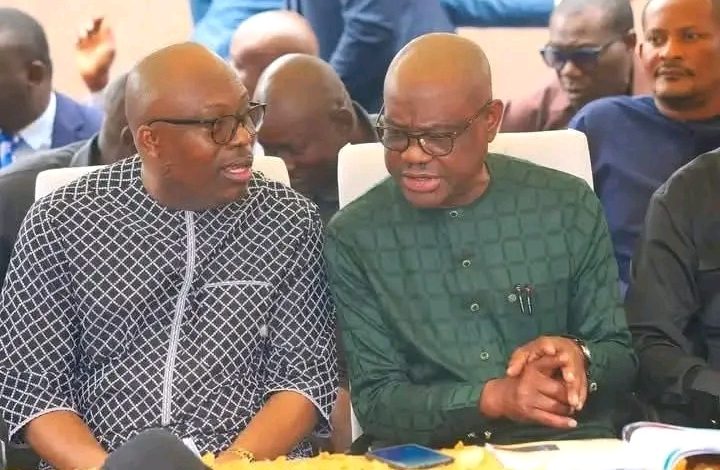
A few hours after President Bola Tinubu brokered a high-level truce between Governor Siminalayi Fubara, Minister of the FCT Nyesom Wike, and key lawmakers in Rivers State, the outcome of the meeting is already facing stiff resistance from prominent stakeholders who describe it as a superficial and lopsided peace deal.
The meeting, held Thursday night at the Presidential Villa, was attended by Governor Fubara, Wike, Speaker of the Rivers State House of Assembly Martins Amaewhule, and several lawmakers from the state.
It ended with an agreement by all parties to work together in the interest of peace and political stability in the state.
But in the aftermath, critics like Ann-Kio Briggs, a member of the Rivers State Elders Council, and Leloonu Nwabubasa, a former commissioner, dismissed the truce as a political surrender disguised as reconciliation.
Nwabubasa said: “I saw surrender, not reconciliation. That cannot be a lasting peace.
“Everything the FCT Minister is doing is to prove to President Tinubu that he can deliver Rivers in 2027. But hunger and misery will decide votes, not promises.”
Briggs, echoing the sentiment, said the people of Rivers feel “thrown under the bus” by the outcome.
She described the President’s involvement as partisan, adding that the absence of a proper negotiation team on Fubara’s side weakened his position.
“It is the peace of the graveyard. The President, unfortunately, has made it a political issue.
“The video clip showed the governor standing alone while those he had been fighting were all around him. The crisis has simply returned to its starting point,” she said.
The concerns were also tied to long-standing political structures in the state, especially the Upland-Riverine rotation agreement. Briggs warned that any attempt to truncate Fubara’s turn could ignite new tensions.
Despite the criticisms, the meeting produced a visible shift in tone between the warring parties.

Fubara should understand that politics is a game he cannot navigate alone; he must yield to the pressure. That is simply the truth.